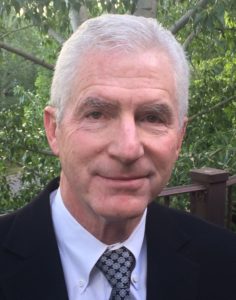In an Invading Sea articlein June, I wrote that new building codes and large public infrastructure projects will not do much to improve flood resilience in the near term for buildings in vulnerable coastal communities.
These homeowners and businesses are already “at risk” for flooding. Most homeowners have no flood insurance, nor have they made risk mitigation investments.
Natural disaster damages are increasing each year and were the highest ever in 2017 at $337 billion. Most of these losses were related to hurricanes Harvey, Irma and Maria and resulted from flood waters and storm surges, not wind damage.
In the U.S. and Puerto Rico, coastal buildings at risk of substantial flood damage number well into the millions of structures. So, while politicians argue interminably over funding for large-scale, flood defense projects, existing buildings remain vulnerable and need greater protections, now.

As a society, how do we help owners make their homes and businesses safer? Even if property owners want to make flood mitigation investments, they may not have the money. How can they obtain the funding they need?
One potential solution may be programs like Florida PACE, which stands for “property assessed clean energy.”
It was started in California as an initiative to help building owners find money for solar and energy efficiency improvements. PACE programs, which are now active in 20 states, provide residential and commercial property owners with 100 percent financing for qualified improvements, based on the available equity in their property.
The amount financed, plus interest and any applicable fees, is then added to property taxes and paid over time on a property tax bill. PACE financing is secured with a continuing lien on the property.
There are five programs operating in Florida — all of which offer commercial financing and two that also offer residential financing. In addition to covering energy efficiency and renewable energy improvements, many Florida PACE programs finance hurricane protection improvements (wind mitigation).
It has funded hurricane mitigation projects worth more than $275 million from 2013-2018, according to one Florida PACE provider, YGrene Energy. Among the more common PACE-funded projects are solar panels, wind-resistant roofing, upgraded HVAC systems, impact-resistant windows and doors, siding, and drought-tolerant landscaping.
Even though most weather-related financial losses in Florida (and the rest of the world, too) result from flooding and not wind damage, the Florida PACE legislation does not finance flood resilience investments.
As climate changes and storms increase in frequency, intensity and damage, existing buildings need to be made more resistant to flooding.
If improved thoughtfully, the PACE legislation is a good starting point to provide billions of dollars to Florida homeowners and businesses to make flood defense upgrades that are required for both short-term and long-term resilience.
The Florida legislation will need to be amended to allow for flood resilience funding, and will need to be modified to make the system work more smoothly for consumers.
PACE-funded flood risk mitigation investments would yield other benefits, as well. A coastal home or business with appropriate flood defenses (raising elevations, flood barriers, landscaping, etc.) will have a higher fair market value, lower maintenance costs, fewer insurance claims, and, possibly, lower annual premiums.
Suppliers and contractors in Florida will sell and install more home improvements and building protections, thereby increasing jobs and economic growth. When homes and small businesses don’t fail (and retreat from the coasts), then, neighborhoods stay stronger, longer – it’s a true win-win-win proposition.
Albert J. Slap is the President of Coastal Risk Consulting, LLC, in Boca Raton, FL. Coastal Risk is a geospatial modeling and data analytics company. For further information, contact him at albertslap@coastalriskconsulting.com, 844-732-7473, www.floodscores.com.
“The Invading Sea” is a collaboration of four South Florida media organizations — the South Florida Sun Sentinel, Miami Herald, Palm Beach Post and WLRN Public Media.



